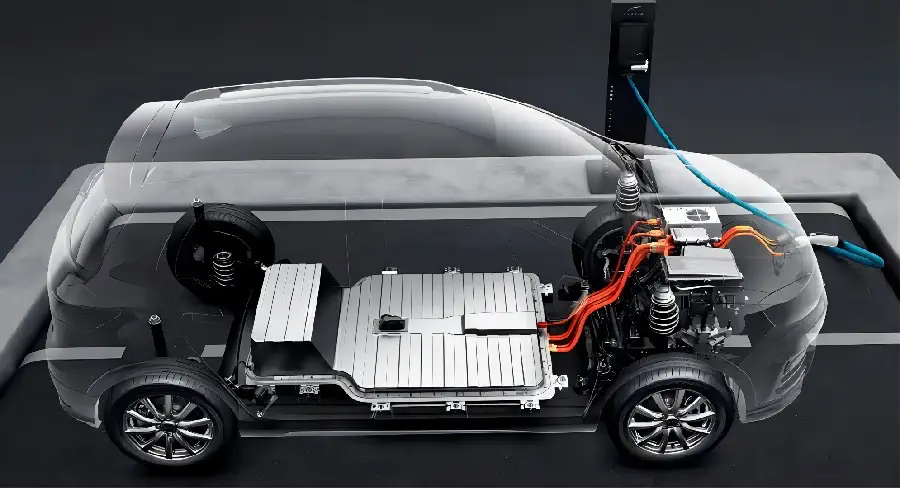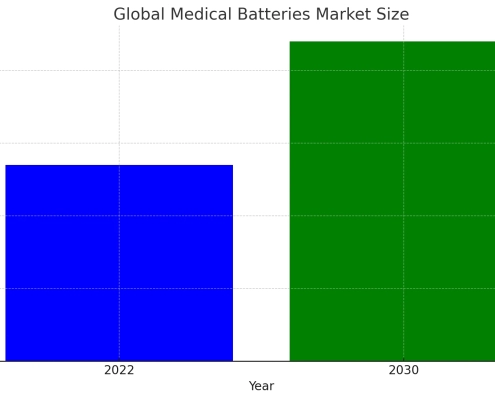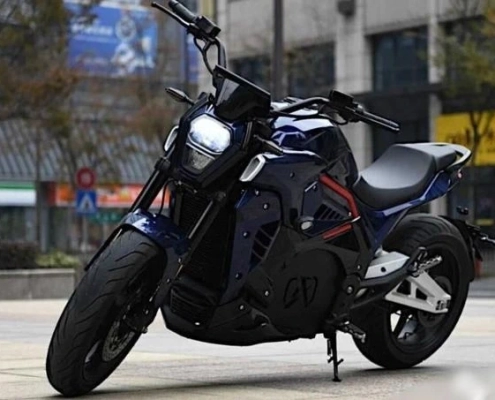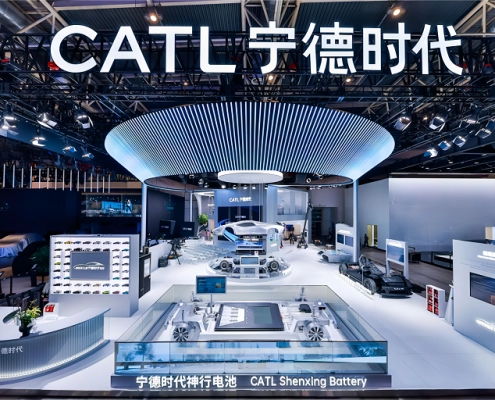China’s Electric Cars Boost Hungary’s Economy
Table of Contents
- China’s Electric Cars Boost Hungary’s Economy
Chinese electric car manufacturers are making a significant impact on the European market, with Hungary emerging as a key player. The collaboration between Hungary and China is transforming Hungary into a major hub for electric vehicle production. This partnership not only boosts Hungary’s economy but also supports the shift towards clean transportation in Europe.
Hungary’s Strategic Advantage in Energy Prices
Hungary has a unique advantage over Western European countries like Germany and France due to its lower energy prices. In December 2022, the Hungarian government established its own energy department to address the European energy crisis caused by the Russia-Ukraine conflict. Hungary’s average electricity price is the lowest in the EU, peaking at €0.10 per kilowatt-hour last year, compared to the EU average of €0.28 and Germany’s €0.34 per kilowatt-hour.
These low energy prices are largely due to Hungary’s strong trade relationship with Russia. Hungary has been one of Russia’s most important energy trade partners in Europe, importing natural gas and oil. Additionally, Hungary is building a new nuclear power plant with the help of Russia’s state-owned nuclear company, Rosatom. EU sanctions against Russia have not included restrictions on nuclear energy, mainly due to Hungary’s opposition.
Hungary is also planning to collaborate with China on nuclear energy. Hungarian Foreign Minister Péter Szijjártó stated this week, “We have agreed on a draft cooperation agreement with China covering all areas of the nuclear industry to ensure both countries can access the cheapest, safest, and most efficient power generation.” This cooperation aims to keep Hungary’s electricity prices low.
By maintaining these relationships and agreements, Hungary ensures affordable energy for its citizens and industries, giving it a significant economic advantage in Europe.
China’s Electric Cars Driving Hungary’s Automotive Growth
Advanced and affordable electric vehicles from China are making their way into Europe. Countries like France, Germany, Italy, Spain, Poland, and Hungary are all seeing an influx of Chinese car manufacturers. Hungary is becoming the biggest beneficiary of this trend. China is helping Hungary surpass Germany, becoming Europe’s leading hub for electric vehicle production.
By embracing Chinese electric car manufacturers, Hungary is set to transform its automotive industry, benefiting from the influx of China made vehicles and their clean technology. This move positions Hungary as a key player in the European electric car market, attracting significant investment and creating new jobs.
This collaboration between Hungary and China not only boosts Hungary’s economy but also promotes the use of clean vehicles across Europe. With Chinese electric car makers like BYD expanding their presence, Hungary is on the path to becoming a major hub for electric vehicle manufacturing.
By focusing on innovation and sustainability, Hungary aims to lead the way in the European electric car market, setting a new standard for clean transportation.
China’s Biggest Electric Car Manufacturer Builds First Factory in Hungary
In Hungary, almost every month brings news of investment from the world’s second-largest economy, especially in the car industry. Hungarian Foreign Minister Péter Szijjártó announced that BYD, a Chinese electric car maker, has received approval for its electric car factory. Construction and infrastructure work in southern Hungary’s Szeged are underway, and the first BYD models will roll off the line next year. He emphasized the importance of having all aspects of the car industry, from production to research and services, in Hungary.
BYD announced the factory in December last year, becoming one of the first major Chinese electric car manufacturers to have its own production facility in Europe. Initially, it will produce 150,000 cars per year, eventually increasing to 300,000 cars.
A second BYD factory in Europe may soon follow. Countries like France, Italy, and Germany are vying for the next BYD plant. Hungarian Prime Minister Viktor Orban said that trade between Hungary and China has quadrupled in twenty years, reaching $12 billion. From Budapest, flights connect to seven Chinese cities.
Hungary Aims to Be a Leading Electric Car Hub
Germany’s WirtschaftsWoche reports that Great Wall Motors is planning to build a car factory in Hungary. The company’s first European plant will be near the city of Pécs in Beise. Great Wall Motors aims to produce its mid-range Ora brand and the high-end Wey brand on a 600-hectare site reserved for production. This factory is another key part of Hungary’s strategy to dominate the Chinese auto industry in Europe.
Hungary is already a leading car manufacturing base in Central and Eastern Europe. Suzuki has been producing cars in Esztergom since 1992, Mercedes-Benz has been in Kecskemét since 2012, and Audi has been in Győr for over twenty years. BMW is building a new factory in Debrecen, planning to start mass production of the so-called New Class models in 2025. With the arrival of Chinese electric car manufacturers, Hungary is surpassing Germany to become a top electric car hub.
The influx of Chinese car manufacturers into Hungary strengthens its position as a major player in the electric vehicle industry. This collaboration is set to boost the Hungarian economy and create numerous jobs, further establishing Hungary as a leader in electric vehicle production in Europe.
Hungary Aims to Lead in Battery Production
Hungary wants to become Europe’s top producer of drive batteries and their parts, with help from China. CATL, a Chinese battery company, is building a battery factory in Debrecen on a 221-hectare site. This factory will create 9,000 jobs.
When CATL announced its plan last December, it aimed to make Hungary a “European production center.” The company strives to sell its popular models in China, Europe, and the U.S., which makes established manufacturers in these markets uneasy.
Additionally, Eve Energy, Huayou Cobalt, and Ningbo Zhanyu Technology have either announced plans or already started building factories in Hungary. These factories will supply European car manufacturers, including German companies like Volkswagen (Audi) and BMW, which already produce in Hungary. Korean companies are also making batteries in Hungary.
With these developments, Hungary is set to become a significant hub for electric vehicle battery production, supporting the growth of electric cars across Europe.
Hungary Relies on Affordable Energy
Hungary has an energy price advantage that countries like Germany and France do not have. In December 2022, the Hungarian government created its own energy department to deal with the European energy crisis caused by the Russia-Ukraine conflict. Hungary’s average electricity price is the lowest in the EU, with a peak of €0.10 per kilowatt-hour last year (EU average: €0.28). In comparison, Germany pays €0.34 per kilowatt-hour on average, more than three times Hungary’s rate.
Hungary’s low energy prices are due to its trade relationship with Russia. Hungary has been one of Russia’s most important energy trade partners in Europe, importing natural gas and oil. It is also building a new nuclear power plant with the help of Russia’s state-owned nuclear company, Rosatom. EU sanctions against Russia have not included restrictions on nuclear energy, mainly because of Hungary’s opposition.
Additionally, Hungary plans to collaborate with China on nuclear energy. Hungarian Foreign Minister Péter Szijjártó said this week, “We have agreed on a draft cooperation agreement with China covering all areas of the nuclear industry to ensure both countries can access the cheapest, safest, and most efficient power generation.” This cooperation aims to keep Hungary’s electricity prices low.
By maintaining these relationships and agreements, Hungary ensures affordable energy for its citizens and industries, giving it a significant economic advantage in Europe.
Conclusion
Hungary’s strategic energy partnerships and collaborations with Chinese electric car manufacturers position it as a leader in the European electric vehicle market. The country’s low energy prices and investments from companies like BYD and CATL are transforming Hungary into a major hub for electric vehicle production. This shift not only strengthens Hungary’s economy but also promotes the use of clean vehicles across Europe, paving the way for a sustainable future in the automotive industry.






